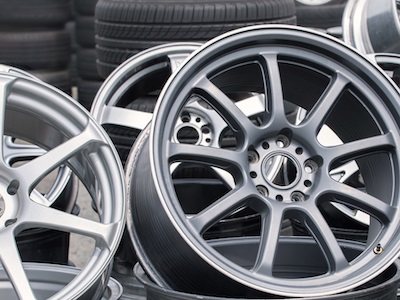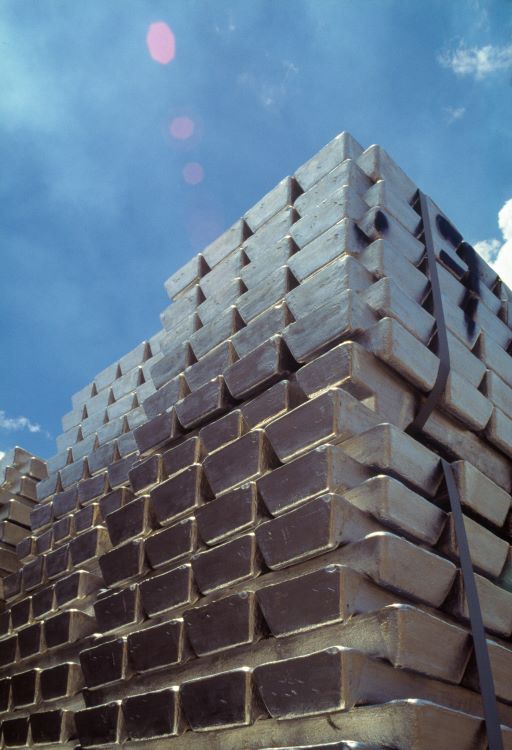Aluminum Scrap Markets

October 6, 2025
As Oswego outage continues, auto and beverage supply seek alternatives
Written by Greg Wittbecker
U.S. auto and beverage companies have been in a state of high anxiety since the Novelis Oswego rolling mill fire of Sept. 16.
Details have been spotty, but here’s what we know so far:
- The fire raged for four hours and the roof structure heavily damaged.
- There is extensive water damage around the hot mill.
- Novelis recalled the entire 1,150 workforce as of Oct. 1 with departments other than the hot mill resuming full operations.
The company is still assessing the damage to the hot mill, and has publicly stated they are working to restore full operations by the end of Q1’26.
Repercussions: Hot band shortage
Oswego is the linchpin to Novelis’ sizable presence in the U.S. automotive sheet market. CRU estimates that Novelis holds a 37% share of North American auto sheet (Novelis’ global share of automotive is 50%, according to company statements). Oswego’s estimated capacity is 350,000-400,000 metric tons. It produces another 40,000-50,000 metric tons of beverage can stock. The company has declared force majeure on automotive, beverage and container stock shipments.
The loss of the Oswego hot mill has a direct effect on Novelis’ Kingston, Ontario, cold mill, which was supplied with about 40,000 metric tons/year of hot band from Oswego. The Oswego outage shuts down Kingston, barring an alternative source of automotive hot band being found.
While Novelis does produce automotive hot band at its joint-venture facility in Logan County, KY, it is believed that capacity is dedicated to the Novelis finishing mill at Guthrie, KY, which has a capacity of 200,000 metric tons/year. This means Novelis may have to either import hot band from its affiliates overseas or seek supply from its domestic competitors.
Hot band supply options
Novelis’ internal sheet production in Europe comes from four plants in Germany, Italy, and Switzerland. It would be expensive to import hot band from Europe simply due to logistical costs. The burden of paying the 50% Section 232 tariff also factors in.
The alternative would be to go to Novelis’ competition for supply. Within the U.S., Arconic, Commonwealth, Constellium and Tri-Arrows produce automotive sheet. The challenge will be finding any spare hot mill capacity amongst these four producers that would allow them to sell hot band to Novelis.
We have not identified any of these four producers who have significant capacity available.
Some unconfirmed reports suggest that Arconic Davenport in Iowa may be exploring options to free up some capacity. We also hear that Constellium Ravenswood in West Virginia is looking at its ability to gear up some automotive production.
Aluminum Dynamics, Inc., (ADI) has also been raised as the most logical candidate to come to Novelis’ aid. ADI’s new mill in Columbus, Miss., is being commissioned. Recent statements by ADI have indicated the plant will achieve 40%-50% capacity utilization by the end of 2025. That would mean 240,000-300,000 metric tons on an annualized basis, or 20,000-25,000 metric tons. Conventional wisdom has been that ADI would begin production on industrial alloys and leave the more technically challenged beverage and automotive alloys toward later in the commissioning process. However, sources tell AMU that ADI has been approached about potentially fast-tracking qualification their mill for automotive sheet production.
Imports would be painful without tariff exemption
Novelis has substantial European and Chinese capacity to supply automotive hot band to the U.S. This would be painfully expensive given the Section 232 tariffs. We would not be surprised to learn intense lobbying could be taking place to get a temporary exemption from Section 232 to support domestic automotive producers.
Collateral damage: Beverage sheet and the scrap markets
The focus on sheet has been on automotive supply, but beverage stock supply is also impacted, and some fillers are equally concerned about supply. Replacing Oswego’s 40,000-50,000 tons of beverage can supply won’t be easy either. All the other incumbent mills (Arconic, Constellium, Tri-Arrows) are full and there’s scarce supply to be had.
Novelis could import hot band from its Brazilian, German, and South Korean mills to bridge this gap. Once again, Section 232 tariffs will make that an expensive option. We’d expect petitions for exemption on can stock to also be pushed hard.
Perhaps lost in the discussion about sheet is collateral damage to the scrap markets. The loss of the Oswego hot mill means potentially, the demand-pull for sheet ingot will be stunted for up to six months until the hot mill is running again. It is possible Novelis will choose to run its Oswego casthouse to accumulate some sheet ingot in advance of the hot mill restart, but it is hard to imagine that would be for six months.
That means that Oswego’s normal demand for scrap will dry up and put even more downward pressure on already weak scrap spreads in the market.
Why this matters
No one active in the automotive or beverage can market is happy about the Oswego fire. While some of Novelis’ competitors may end up picking up incremental spot business, the overarching comment from many has been “an extended outage at Oswego is not good for any of us, as it shakes the confidence of the OEM in relying on aluminum for supply.”
No one wants to see the OEM move demand from aluminum back to steel. There seems to be genuine effort by all parties to help solve the supply shortage and preserve long-term demand for aluminum.







